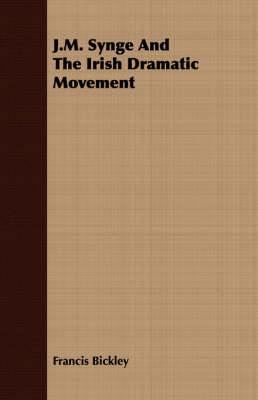Overview
I912 NOTE IN the following pages no attempt is made to give Synge his ultimate place in literary history. Two or three hundred years hence will be time enough to begin to think of doing that. My airn has been to show, roughly, where he stood in relation to his contemporaries and, still more roughly, in the line of English-written drama and to analyse the qualities which make his work so notable. The pages dealing with the Irish Dramatic Movement are to be regarded as background. I must express my thanks to Mr. Yeats for his kindness in reading proofs and in giving me some valuable hints also to Mr. Yeats and Mr. Fisher Unwin for permission to print the poem . SYNGES CAREER JOHN MI LLINGTONS YNGEw as born near Dublin in 1871, coming from a family which has long owned land in different parts of Ireland. He died at a private hospital in Dublin, March 24th, 1909. His physical life thus came to an early end. His artistic life, on the other hand-its creative phase at least-was late in beginning. Some four or five years of not exceptionally prolific production were the sum of it. It was not so much that Synge was abnormally late in finding himself, as that he had the unusual wisdom to bide his time. Thus, although in his travelsketches and poems he has given us a - glimpse of the raw material from which his plays were wrought, he has kept care fully hidden the botchings of his prentice years. With his right material close at hand, he at first deliberately turned his back on it. As a boy he wandered among the Wicklow hills. I kuew the stars, the flowers, and tlie birds, The grey and wintry sides of many glens, And did but half remember human words, 111 converse with the mountains, moors andfens, he writes. But he entered and graduated at Trinity College, Dublin, a proceeding which, according to patriotic Irishmen, withers art and right feeling at their sources. Synge, at any rate, after taking his degree, left his native land, and forgot what little Gaelic he had known. The desire of self-expression was already strong in him, but he sought his medium in France, in Germany and in Italy. He sought it also in books. From his poems, which are so intensely personal, one may gather a list of the authors of his predilection Villon, Petrarch, Ronsard, Rabelais, Nash, Cervantes, Herrick. Characteristically, he was concerned with the ages when the quality of energy was at its height in European literature but . he was also reading more modern stuff. His wanderjaizre fell in the nineties, the day of symbolism and decadence, though, curiously enough, German rather than French influences are apparent in his fledgling literature. At this work Mr. William Butler Yeats found him in Paris, in 1897 or thereabouts, living in the state of poverty implied by a top floor in the Latin quarter. Mr. Yeats saw at once that the poems and essays Synge showed him were of no value, merely poor examples of the morbidities of the time, images reflected from mirror to mirror. He had wandered, writes the poet in his preface to Synges Well oj the Saints, among people whose life is as picturesque as the middle ages, playing his fiddle to Italian sailors, and listening to stories in Bavarian woods, but life had cast no light into his writings. Now it so happened that in these dying moments of the last century Mr. Yeats was at his grand climacteric...
Full Product Details
Author: Francis Bickley
Publisher: Read Books
Imprint: Read Books
Dimensions:
Width: 14.00cm
, Height: 0.60cm
, Length: 21.60cm
Weight: 0.136kg
ISBN: 9781408634950
ISBN 10: 1408634953
Pages: 100
Publication Date: 01 February 2008
Audience:
General/trade
,
General
Format: Paperback
Publisher's Status: Active
Availability: In Print

This item will be ordered in for you from one of our suppliers. Upon receipt, we will promptly dispatch it out to you. For in store availability, please contact us.



